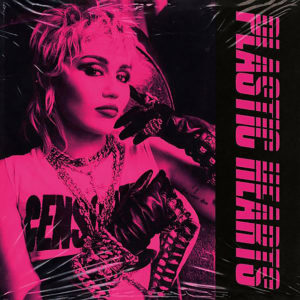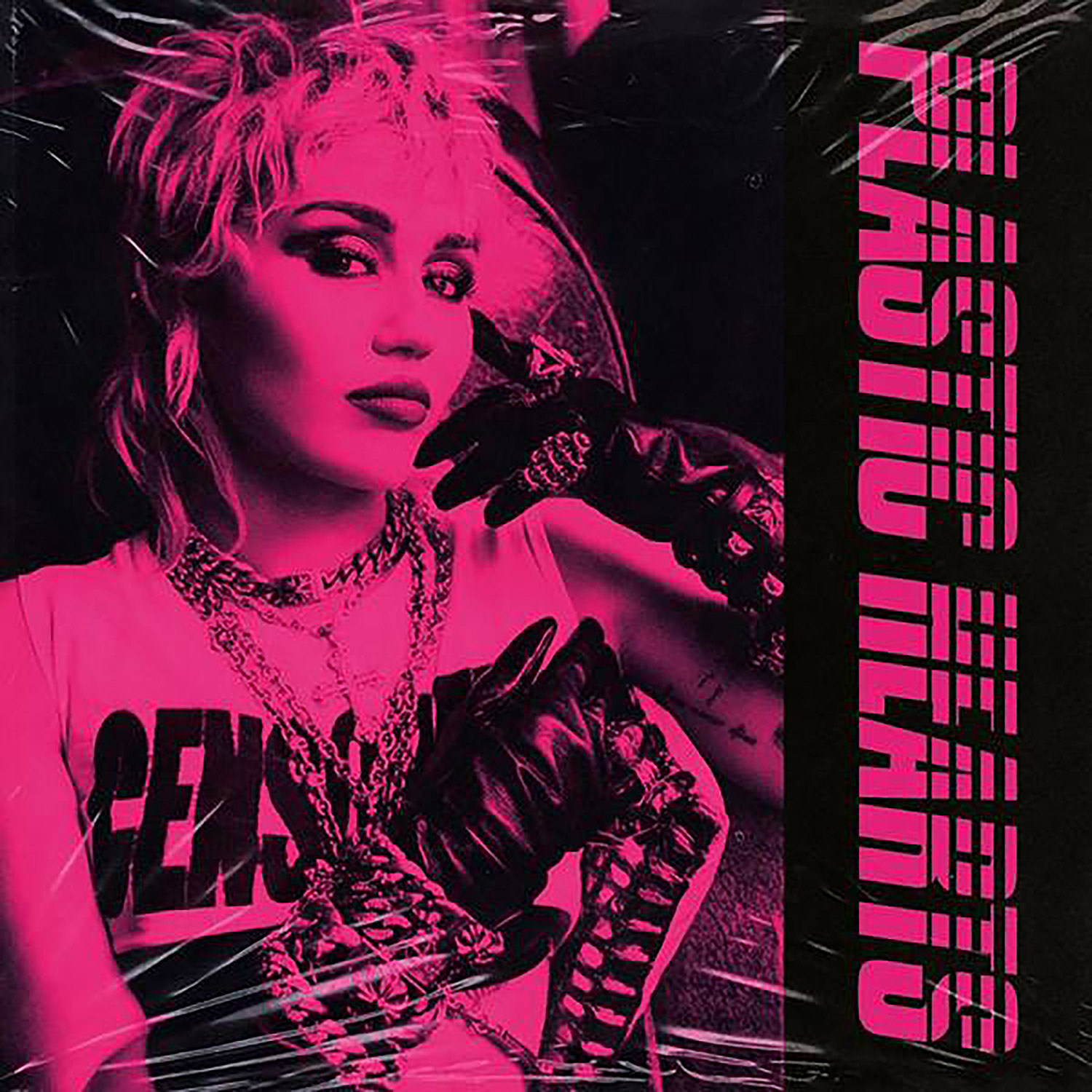Miley Cyrus
Plastic Hearts
RCA
7/10
Whether you’re a superhero or a popstar, most of us wear some type of mask. In her recent interview with Zane Lowe discussing her new album Plastic Hearts, Miley Cyrus raises the complications of being the former. She likens her powerful voice, which cozies between a nasally sheen and indestructible grit, to Spiderman’s involuntary special abilities. When she’s in her element, she doesn’t overthink it—she relinquishes herself to her own super power. In that same interview, she admits that she’s played many characters throughout her career. On Plastic Hearts, Cyrus has found a mask that fits, a glamour punk with lipstick the color of blood that isn’t smear-proof, delivering her strongest performance in years.
Plastic Hearts is the album that would have made the most sense for Miley after ending her Disney Channel residence with Hannah Montana. Its twelve tracks—not including the bonus covers of Stevie Nicks, Blondie, and the Cranberries—are a delicious blend of sugary pop and cathartic rock. It’s also packed to the brim with conflicts over identity and dueling dichotomies. Most people with superpowers get tripped up by living double lives.
Opener “WTF Do I Know” is a saucy confrontation of what all Miley’s onlookers say about her. During the chorus she realizes she’s on her own, “’Cause I couldn’t be somebody’s hero.” Her voice rises, agitated. The most enlightening moments are when Cyrus doesn’t recognize herself, or she recognizes a part she doesn’t want to see. On the title track she’s frightened by her own reflection; during “Midnight Sky” the mirror tells her to go home.
Musically, Plastic Hearts has found the stable chemical balance of ballads and bangers that will bring you to your knees. There’s the insatiable radio hit in “Prisoner” with Dua Lipa (although weak in comparison to the rest of the group). There’s the late-’70s indebted tear-jerker “Angels Like You,” which has the grandiosity of Aerosmith and the sincerity of Elton John. There’s the self-pitying and self-loathing “Hate Me” that channels Mott the Hoople. There are winks to The Stones, Johnny Cash, and Bowie.
The slinky power-pop with the stiff lip of classic rock brings out the best in Cyrus’s voice and some of the most poignant songwriting she’s ever published, having found her groove among producers Mark Ronson, Andrew Wotman, and Ryan Tedder. The duets she recorded with her influences Joan Jett and Billy Idol are enticing lowlights, as opposed to the gimmicky slap-ons they could have been. The sensual “Bad Karma,” recorded with the former, is a fun prowl of independence with beaming guitar strums, Jett’s voice sounding like stilettos on dirty pavement. The vampiric new wave she delivers with Billy Idol is seductive, despite being a bit lyrically hollow.
Throughout Plastic Hearts, Cyrus recognizes that she’s in an industry that praises shape-shifting—as a kid, her Disney reign centered around that. Now she’s realized that changing and complexity doesn’t mean you have to sacrifice yourself. Although some of the rock iconography might seem plucked from the Guitar Hero catalog, these tracks demonstrate she’s released herself slightly from excessive idealization or demonization on this album. She’s not our hero, but she is a fantastic performer. With a wink to her Disney days (and maybe the pastiche albums that followed), she eschews inauthenticity, singing “They say it’s bad karma when you live a double life” on “Bad Karma.” Plastic Hearts is the best Cyrus’s voice has ever sounded, and maybe it’s because this album feels like she’s performing for herself first and foremost.









